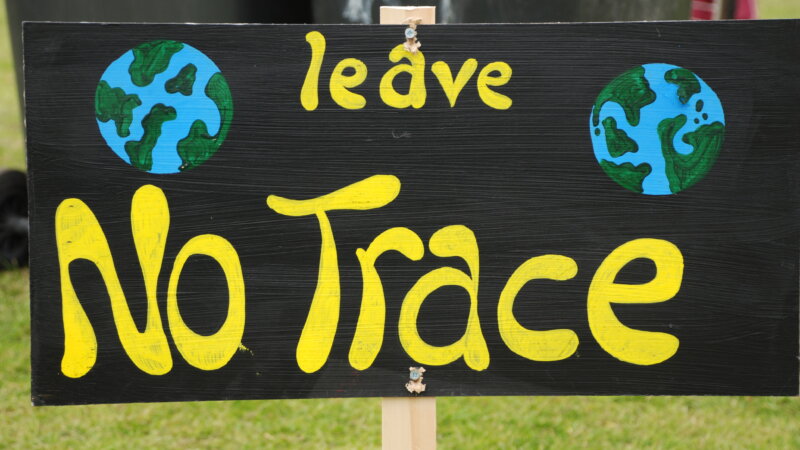Stuart Baker: Soul Jazz Records founder talks about music, culture and identity
Mirror to the Soul - Music, Culture and Identity in the Caribbean 1920-72 is a welcome antidote to much of the meaningless wonder-porn media we are inundated with in which we view other ‘worlds’ through a patronising and self-serving lens. A selection of otherwise forgotten archive footage has been pulled out of the vaults, dusted down and set to a beautifully fitting soundtrack of mambo, calypso, reggae and roots that London-based Soul Jazz Records have become known for reissuing.
In an unedited and unaired interview from the early 50s, a former leader of the white defence league chastises the idea of a mulatto Britain born from the “evils of a coloured invasion”. Nuzzled alongside is a saturated montage of a bustling London food market from the late 70s, the clipped English voiceover asking viewers to “think of any baby and hope that their lives will profit from this blending of different worlds”. As its full title suggests, the film uses former news clips compiled by British Pathé during that period to promote the Caribbean to the cinema-going British public.
Most of the footage verges on propaganda, with serious news items detailing the Cuban revolution and lighter reportage on state visits by members of the British royal family. Politically charged clips are blended with frolicking magazine excerpts on swinging 60s fashion in Venezuela, gorgeous shots of black dance companies and musicians in London, and grainy early film of coffee and banana production lines in Trinidad and Jamaica.
Stuart Baker, founder of Soul Jazz Records, dug up and directed the footage, more of which can be found on the British Pathé website. Baker answered a few questions ahead of the film’s screening and his DJ set as part of Refract this August. You can catch Mirror to the Soul (with director Q+A) at the Showroom Cinema on August 10th.
Where did the idea for the film come from and how did you get access to the footage?
I was researching a separate project about lovers rock and the relationship between Britain and the Caribbean and came across some footage. We then contacted Pathé who agreed to meet us and subsequently to the project.
Why did you choose to cover the entire region?
I've travelled to Haiti, Cuba, Jamaica, Guadeloupe and Belize, mainly recording Afro-Caribbean sacred music. All of them are connected and yet different. For instance, in Belize they have a culture called Dugu, related to voodoo and santeria, and yet have never heard either. This is part of what I wanted to explore. Also the notion of Afro-Caribbean identity and roots and how it relates to myself being adopted (but not Afro-Caribbean).
How did you go about editing and compiling the footage?
We had previously made a four-hour documentary about Studio One Records in Jamaica so I was quite used to collating large amounts of material and honing it down. The same editor did both these projects.
Did you have any plans to develop it into a talking head doc with a narrative. It’s interesting that there is this very dictatorial, colonial voice commentating but we're so far removed from that way of thinking that it allows us space to develop our own judgements.
I didn’t want any talking heads. I wanted the film to be as much about how we look at and read the values of Britain at this time as presented by Pathé, as it was a documentary about the Caribbean. Also I see it as a narrative rather than any kind of objective documentary.
Why did you choose not to create a music doc or even a dance music doc, particularly when you had such incredible footage of Les Ballet Negres and clips of revellers in the Caribbean club in Piccadilly.
Well, we have been releasing music for over 20 years already. For a long time now I have thought of music as part of a larger picture - a cultural expression of various societies. This film gave an opportunity to look at different aspects of societies - culture as well as industry, nature, politics, weather and more.
How do you think Soul Jazz differs to a company like British Pathé in exporting Caribbean culture and music?
Pathé's driving force was ultimately to run as a business by presenting an idea and image of Britain, its values and the how that related to the rest of the world. I'm not really interested in British values, except to maybe change them by presenting different world views.
Have you had any response from people who might remember some of the clips?
I have been at screenings where people who migrated from the Caribbean have remembered and talked about the subject matter, but no-one has commented that they saw these at the cinema the first time around.
Do you have a favourite pun of Pathé narrator Bob Danvers-Walker?
There are a lot. They really are the worst (or best) puns I have ever heard in my life. I think “they eat what they can and what they can't eat they can”, referring to the Puerto Rican canning industry of pineapples, springs to mind as a true classic.
The soundtrack to the film itself generally doesn't seem to follow any chronological order. How did you match the songs to the clips?
Just instinctively, by trial and error. It seemed to make more sense with the music being from a different era to the footage and also from a different part of the Caribbean, which altogether draws a picture of the Caribbean as a whole. That was the idea anyway.
The footage of immigrants in the UK, from mixed families and nurseries to recordings of dance and live music and the arrival of HM Windrush, was particularly moving. The vox pops were insightful and it was refreshing to hear members of the diasporic community speak themselves. Was there a lot more footage like that you could have played around with?
No, you have most of it here. I agree it was refreshing. One of the most surprising elements to me was how progressive Pathé was in how it chose to report immigration. I found the reports forward-thinking in their pieces on the subject, which was not how I imagined or had in my head that they would be.
The influence of African roots music has been strongly documented by Soul Jazz and you continue to follow the trail of its inspiration right up to the minute. Why do you think it’s important that projects like Mirror to the Soul and other Soul Jazz films contextulise British electronic music?
I am just interested in the intellectual study of dance music and tracing its roots is a very rich source of culture that takes you to many worlds. Through this journey I've seen people running up trees in a trance, spirit possession, different cultures and more. It's good fun and stimulating.
REFRACT is a series of events taking place at Showroom Workstation that will challenge the conventions of dance music culture by exposing its components using non-traditional spaces and approaches. These events are part of New Music Plus UK, developed by PRS for Music Foundation in association with the hub. Events will be running between August 2013 and January 2014.
showroomworkstation.org.uk/mirrortothesoul
refractshef.com )





